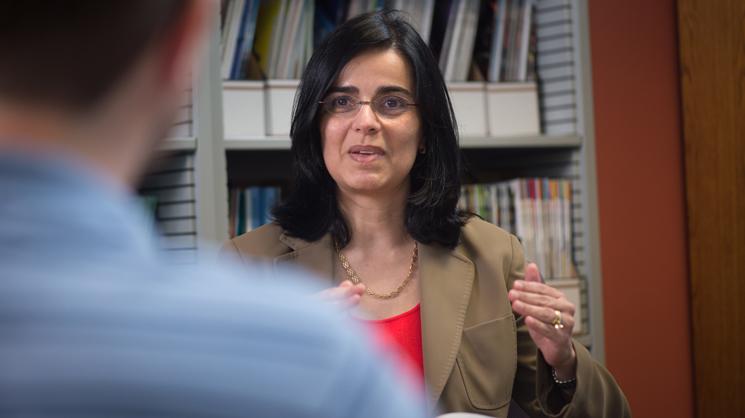Rice University computer scientist Lydia Kavraki has received one of the most prestigious honors in her field, the Association for Computing Machinery’s (ACM) Athena Lecturer Award.
The Noah Harding Professor of Computer Science and professor of bioengineering was recognized for inventing randomized motion-planning algorithm in robotics and for the development of robotics-inspired methods for bioinformatics and biomedicine.
"I am deeply honored by this award," said Kavraki, who joined Rice's faculty in 1996. "It recognizes years of work done with my students and collaborators at Rice and around the globe. I am also delighted that ACM has chosen to name one of its top awards after Athena, the goddess of wisdom in ancient Greek mythology, who was a patron of human ingenuity and an astute adviser of heroes."
Given annually since 2006, the Athena Lecturer Award celebrates female researchers who make fundamental contributions to computer science. The award carries a cash prize of $25,000 and the honoree is invited to give a lecture at a major ACM conference.
"Planning the motion of objects in a three-dimensional space has been a central challenge in the robotics field for a long time," said ACM President Vicki Hanson. "Lydia Kavraki's Probabilistic Roadmap Method has had a tremendous impact."
In addition to her recognition by the ACM, Kavraki has produced a prolific amount of work in the last 12 months, resulting in publications and grants such as:
Kavraki gets CPRIT grant for cancer research
Ribbon cut for new Kavraki robotics lab
Through Kavraki, Rice has role in new $250 million robotics manufacturing institute
Kavraki co-wrote motion planning chapter in premeir robotics reference book
She has also mentored several of her early graduate students through successful 2017 fellowship applications.
Two first year CS Ph.D. students in Kavraki lab win NASA Fellowships
Zak Kingston (Kavraki lab) wins NSF Fellowship

